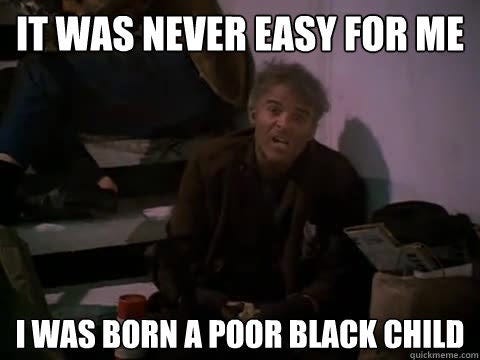No, your eyes do not deceive you. Yes, you've seen this before. Let's just pretend it didn't happen, ok? It's worth looking at it again and sharing with people, and now that it's officially published you can comment if you feel so inclined. And, I’m sending a reminder about our upcoming live chat with Dr. Jessie Wilkerson, author of Living with Dolly Parton. We will be taking questions for the event in an Open Discussion Thread, so get them ready and look out for the link to register soon. Thanks so much for reading and sharing, everybody. It's been a wonderful start to the essaying community. - Tressie
When writing a longform essay, a lot of material ends up on the cutting room floor. For five months I read on — and around — Dolly Parton with great deliberation. My first complete drafts qualify as small books, around 12,000 words. There was more than one way to enter the conversation, and there was a clip going around of Barack Obama on Stephen Colbert this past December that captured one of those entry points. In that first massive draft, I used this moment to open the essay:
In a segment called “Questions We’re Pretty Sure Barack Obama Has Never Been Asked Before,” Stephen Colbert lands a flurry of questions, but a question about Dolly Parton gets the biggest laugh. “How does Dolly Parton not have a Presidential Medal of Freedom?!,” Colbert mock-demands. Smiling a smile so uniquely charming that it must qualify as intellectual property, Obama responds ruefully that he thought Dolly already had that award. It is a mistake he intends to rectify by “getting Joe on the phone.”
My argument is that we did not need Dolly Parton when Barack Obama was president. The South doesn’t need redemption when the president is Black. Only under a presidency as brazenly white nationalist as Trump’s would we need an unproblematic fave to reassure us that we are in fact still good people, to represent and revamp the image of a progressive South. That is why we project our shortcomings onto Dolly. “We craft Dolly into an unproblematic fave and make stanning her a positive pop ethic because the most problematic part of The Dolly Parton Moment is us.” That is where the narrative begins.
I loved this lede. The entire time I was writing it, I was having a teetotal ball. I also knew as I was writing it that it was a crap lede. First of all, it is rude. It invites you to a dinner party halfway through the third course. It is also clever, and people hate a clever woman. The lede brings up more questions than it provides guideposts for the coming argument. I know all of that. Still, I loved the lede so much that I wrote it anyway and stuck it right at the top of the draft like I had done something. I did that for a couple of reasons that are about voice and, okay, maybe a little bit about being a troll.
Every essay has an energy signature. Some essays meander, always with purpose but without great urgency. Sometimes an essay can sit you down for a stern talking to, and other times it can seduce you. I have written many types of essays, with different energy signatures always chosen with the argument in mind. Do you serve soup on a salad plate? Of course not. I don’t serve a headbanger in a silk pant unless disorientation is part of the seduction.
For the Dolly essay, I kept hearing a line from Walk the Line, the Johnny Cash biopic. Reese Witherspoon’s June Carter-not-yet-Cash has just met one of her biggest fans in a man named Johnny. She tells him he is the new singer she has heard on the radio, the one with the voice that sounds like a train barreling down the track. The line is an easter egg for Carter-Cash fans who have heard June describe the real Cash that way many times: “Steady like a train, sharp like a razor,” she has said. Writing the Obama lede generated the energy signature that I wanted imprinted across the entire essay. I had to get that right from the very first paragraph or the call into a public would be jeopardized.
I knew who I was writing about. Being critical of Dolly Parton is a risk. Every single reader would be resistant to the basic premise of my argument, namely that Dolly should be critiqued at all. I also knew that public adulation was nearing its peak. Any writer at that moment had one chance to get it as close to right as they could. There would not be any room to revise the argument. The zeitgeist is not that generous. The essay had to do one thing really well, consistently well, from start to finish. Accomplishing that was going to hurt the sympathetic reader a little bit, like a razor too close to the knee. That’s why the essay had to barrel down on you like a train.
Some readers have said they lost their breath in the turns of the argument. That is probably because the outline for the essay had eight major parts. That is a lot for one essay. Anything more than two turns asks readers for a lot of trust. That is always a big ask. It is arguably the ask that without which no essay ever comes into being. You may end up with an “Am I The Asshole” style internet post or a diary entry without the readers’ trust but you won’t have the public that is necessary for an essay.
Some writers have to work harder than others to earn a reader’s trust. Most readers consider Black women unreliable narrators. That is even true for many Black readers. That is what anti-blackness does. I have to consider that resistance when I write. One way I do that is crafting an argument to move. The Dolly essay had to establish a rhythm from the outset and never let up. I felt a little bad about that but I could not give the reader anywhere to rest awhile on the trip.
My decision to disallow resting places in the essay is why many of the Dolly-isms people ask me about do not make an appearance. I do not talk about the backlash to Dolly’s Dixie Stampede from 2018. That is the story about how a Black writer’s essay about the confederate war apologia at one of Dolly’s Pigeon Forge attractions trafficked in white nationalist ideas. I do not mention that story because you likely already know it. Even if you did not know that story, its contours would feel familiar to you. A racism happens. No malice is found. Dolly repents. Everyone keeps loving Dolly. It is soothing. Once you are under the weighted blanket of a familiar story, you do not come back out into the cold waters of a new one. So, nope, no Dixie Stampede. I also did not touch on the story Dolly likes to tell about modeling her look after the town tramp. The story is too cute to be useful to critical thinking. That is why Dolly tells it. It shuts down one lens to get you to refocus where she wants you to look. If I gave you that story, the pull of Dolly would be too strong. You might not come back to the ride. I stayed tight and lean to keep the argument on track. Like a train, the argument bears down, no brakes for turns, all in an attempt to get you to a destination.
The Obama lede is charming. It entertains me greatly. I think it is profound in a small way. And, it is timely. None of these things was going to get you on the train.
I cut it.
You can read the first draft of that lede below and talk to me about it in the subscribers-only Discussion thread.
If you are interested in learning more of the choices every writer makes to get you where they want you to go, check out this interview with Victor LaValle in the Los Angeles Review of Books.
On a more personal note, I made a very conscious decision not to do trauma porn for the Dolly essay. I do not lead with memoir because a generalist audience could not be trusted with it. The story that reader would accept from me is some version of The Jerk’s “I was born a poor black child in Mississippi.”

The only surprising thing about me liking Dolly Parton is the racist assumption that I would not. The great thing about being in this stage of my career is that I do not have to entertain invitations to write my trauma. Check out this panel I did at Yale during the Before Times with some friends, new and old, on that topic:
A picture from that event popped up in my social media flashbacks this week. It was two years ago. Roxane and I had just gotten a call from our attorney that our now-infamous podcast was a-go. Saeed kept making me laugh. Aubrey looked flawless. Terese had a flock of swooning fans. We were all soaring on wind currents from different directions but one trajectory. I haven’t suffered the purge as many, many people have. I am blessed. My family survived. My internet only went down three times. I kept a job. I always knew how I was going to eat. I miss the before times but as long as we are alive, there is another day to write like life matters because it does.
This post is an example of why I started essaying: to give you a behind-the-scenes look into my creative process, the “making of” what you see in print. These backstage pass posts will become a feature for paid subscribers only. Join our public here:
From “Dolly Parton’s Very Blonde Ambitions: Why We Stan a Post-Racial Queen, v. 2”
In the waning days of Trump's long national nightmare, a fearful buoyancy began to emerge for millions of Americans — the kind of people who stay awake to watch late-night network television. Comedian Stephen Colbert has spent months keeping a somber tone more commensurate with the times. But on the evening of December 6, he eases back into comedic form. It is good timing for his guest, former President Barack Obama. Obama has been cagey with public life since leaving office, perhaps due to the ignoble successor to the throne. With a new memoir to promote and at least half a nation feeling contrite about failing his presidential legacy, Obama is back in rare form. In a segment called “Questions We’re Pretty Sure Barack Obama Has Never Been Asked Before,” Colbert lands a flurry of questions. But a question about Dolly Parton gets the biggest laugh: “Why didn’t you give Dolly Parton the Presidential Medal of Freedom?!,” Colbert’s mock-demands. Smiling a smile so uniquely charming that it must qualify as intellectual property, Obama responds ruefully that he thought Dolly already had that award. It is a mistake he intends to rectify by “getting Joe on the phone.”
The exchange marks the singular achievement of The Dolly Parton Moment. Not unlike Barack Obama, whose historically significant election will forever set him above and apart from other massively known former presidents, Dolly Parton is more than a pedestrian celebrity. Dolly Parton’s ascendance to pop-culture icon over the last five years is notable not just for its scale but for how she has managed to cobble together vastly different audiences into a massive mega-audience. Parton’s arrival at this stage of her career, a stage that is not a taken-for-granted stage of stardom, is also notable for how unproblematic she is. Even Barack Obama cannot say that.







I love this, thank you for making it make sense. I also want to say that the marketing side of my brain cannot shut up about how brilliant this offering is. The placement of the "Subscribe Now" button really got me. As a digital community builder I very much look forward to the day we hopefully get to read your insights from behind-the-scenes of building this space! Thank you thank you <3